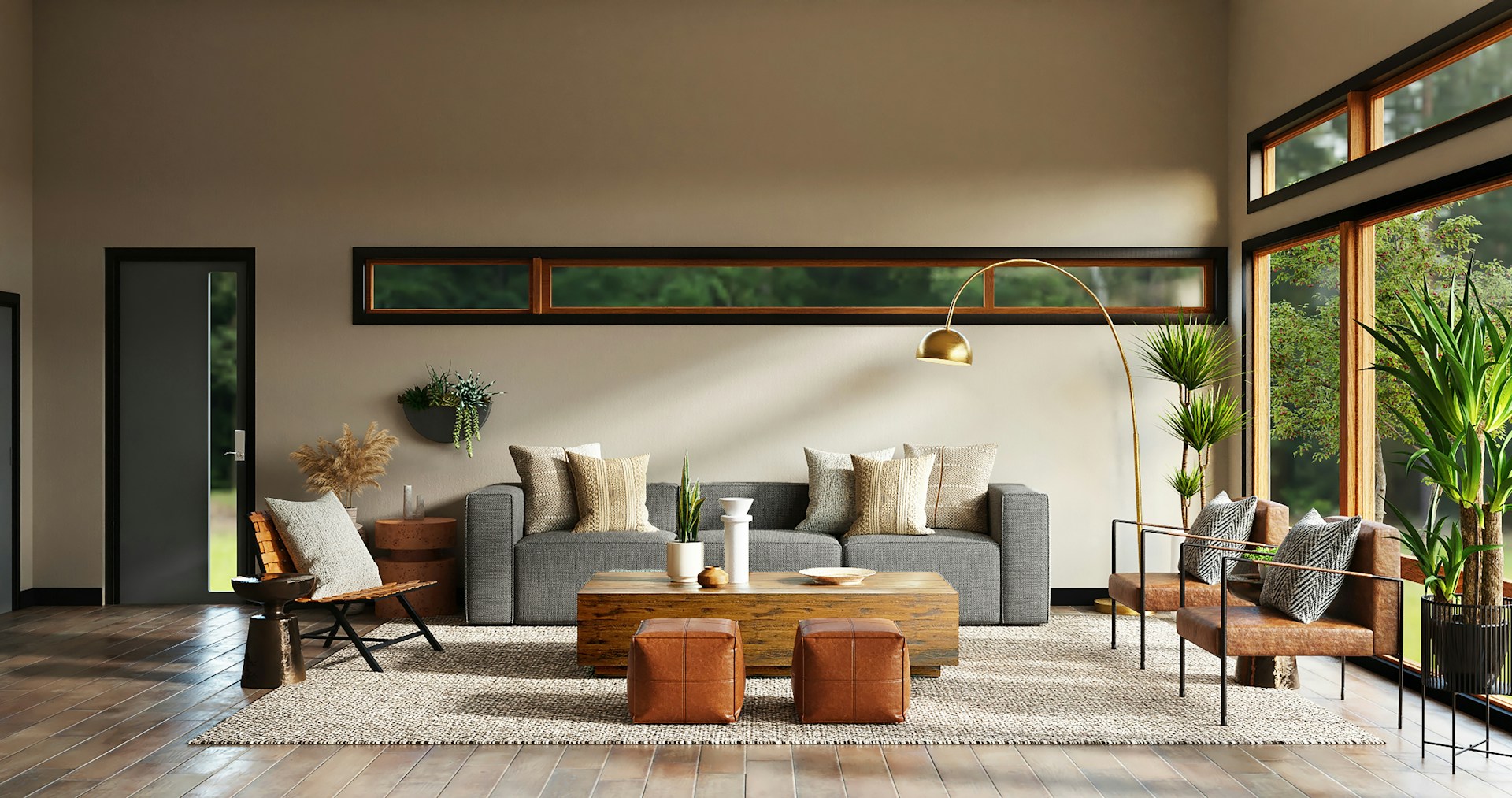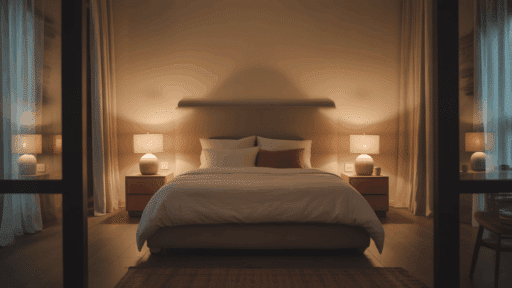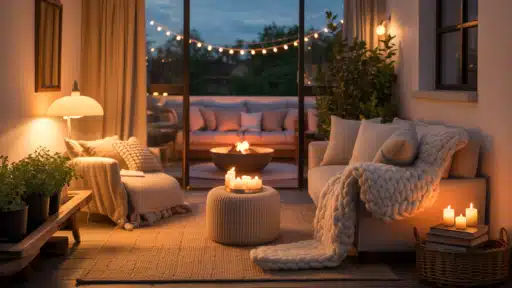There’s something powerful about waking up in a home that supports your peace instead of competing with it. It’s not about chasing perfection or suddenly becoming someone who alphabetizes their pantry for fun. It’s about small shifts that make your space feel like a place you actually want to be in, not just the box you exist in while life happens around you. For a lot of people, especially those dealing with stress or burnout, this starts with a mindset change: your home isn’t a project you’re constantly failing at—it’s a living part of your mental health toolkit.
Start where you are, not where Instagram thinks you should be. The goal isn’t to live in a sterile showroom. It’s to create a space that breathes with you, that reflects who you are, and that holds you when the world outside feels loud or unkind. A healthier, happier, cleaner home doesn’t come from guilt—it comes from deciding you deserve one, even if it’s a little messy along the way.
Clear Out the Noise (Not Just the Clutter)
Decluttering is the obvious starting point, but we’re not doing that punishing, all-or-nothing thing. You don’t have to haul six trash bags to the curb in one afternoon to feel better. The real win is in reclaiming visual peace—getting rid of the extra stuff that overstimulates your brain without offering anything back.
Start with the spaces where your eyes land most often: your kitchen counters, your nightstand, your bathroom sink. These are little pockets of power. When they’re not buried in receipts, expired coupons, or half-used travel lotions from 2017, they create a kind of silent permission to breathe.
This isn’t about minimalism as a lifestyle—it’s about reducing the daily mental load. When your home has fewer things yelling at you for attention, your nervous system finally gets to calm down a notch. And that, in itself, is a mental health upgrade.
Make Clean Feel Less Like a Chore and More Like a Reset
Cleaning can be weirdly therapeutic when it stops feeling like a punishment. There’s something deeply satisfying about wiping down your bathroom mirror and suddenly being able to see yourself clearly again—literally and metaphorically. It’s not about achieving spotless perfection; it’s about claiming the ritual of care.
Instead of trying to overhaul the entire house in a weekend frenzy, fold cleaning into your routine the same way you’d fold laundry while talking on the phone. Think of it less like scrubbing out shame and more like brushing your teeth—basic, low-drama maintenance.
And the benefits show up fast. Studies have linked a tidy home with lower cortisol levels, better sleep, and even increased focus. You’re not just removing dust; you’re creating a space where your mind doesn’t have to work so hard to filter out chaos. That ripple effect matters. You might not feel the change immediately, but one day you’ll notice you’re not snapping at people quite as much or walking through your house with that low-key anxious buzz.
Turn Down the Volume on Toxins and Triggers
The air inside your house shouldn’t feel like a science experiment gone wrong. And no, you don’t need to go full-on chemical-free survivalist to clean up your space. But paying attention to what you’re breathing, touching, and soaking into your skin every day can make a difference you actually feel.
Start with scent. Synthetic air fresheners, harsh cleaning sprays, and overly perfumed laundry detergents can quietly wreak havoc on your mood, your hormones, and your skin. Swapping those for unscented or naturally scented options with ingredients you can pronounce isn’t just trend-chasing—it’s your nervous system’s new best friend.
Plants help, too. Not just because they look nice, but because they’re living proof that your space is alive. A snake plant in your bedroom or a pothos in your bathroom can help purify the air while also reminding you that growth doesn’t have to be dramatic to be real. It can be slow, green, and stubbornly optimistic.
Rethink Your Relationship With the Bathroom
No one wants to talk about bathrooms, but they’re low-key emotional mirrors. When your bathroom feels like a place where you’re constantly rushing or avoiding eye contact with your own reflection, it adds a strange tension to your day. But when it feels clean, stocked, and just slightly more intentional? It becomes a space where you can reset, not just rinse.
Try adding small things that make you feel cared for—a soft bath mat that doesn’t feel like sandpaper, a candle you actually like, a drawer that isn’t overflowing with expired medications and broken hair ties. And if there’s one swap worth making today, it’s your cleaning products. Using eco friendly toilet cleaning products doesn’t just help the planet. It helps your lungs, your skin, and your sanity. You’re not left gagging from bleach fumes or wondering what you just absorbed through your hands. It’s cleaner cleaning—and you deserve that.
Let Light and Routine Do Some of the Heavy Lifting
If you’ve ever felt a little more hopeful on a sunny day, you already get it. Light—real or artificial—can nudge your body and brain toward balance. Open your curtains, clean your windows, and don’t underestimate how much mood-shifting power a cheap daylight bulb can have in darker corners of your home.
Then there’s routine, which isn’t sexy but works. You don’t need a color-coded chore chart or a ten-step skincare ritual. But having a few predictable touchpoints throughout your day—morning coffee at the same table, a quick end-of-day kitchen wipe-down, a light you always turn on before bed—signals to your brain that you’re safe and steady. And when the world outside feels anything but, that sense of rhythm helps more than you think.
No routine is too small to count. If it makes you feel a tiny bit more in control of your space, it’s not trivial. It’s functional self-respect.
Closing It Out
A healthy, happy, clean home isn’t a finish line. It’s a living thing that ebbs and flows with your real life. Some days it’ll be a mess. Some days it’ll feel like a fresh start. That’s not failure—it’s rhythm.
The goal isn’t to impress guests or chase aesthetics that don’t belong to you. It’s to make your home work for your nervous system, your energy, your daily chaos. It’s okay if that means there are toys on the floor, dishes in the sink, or dog hair on the couch. What matters is that you feel supported, not judged, in your own space.
Start small. Stay real. Let your home grow into something that cares for you back. That’s the kind of change that sticks.








